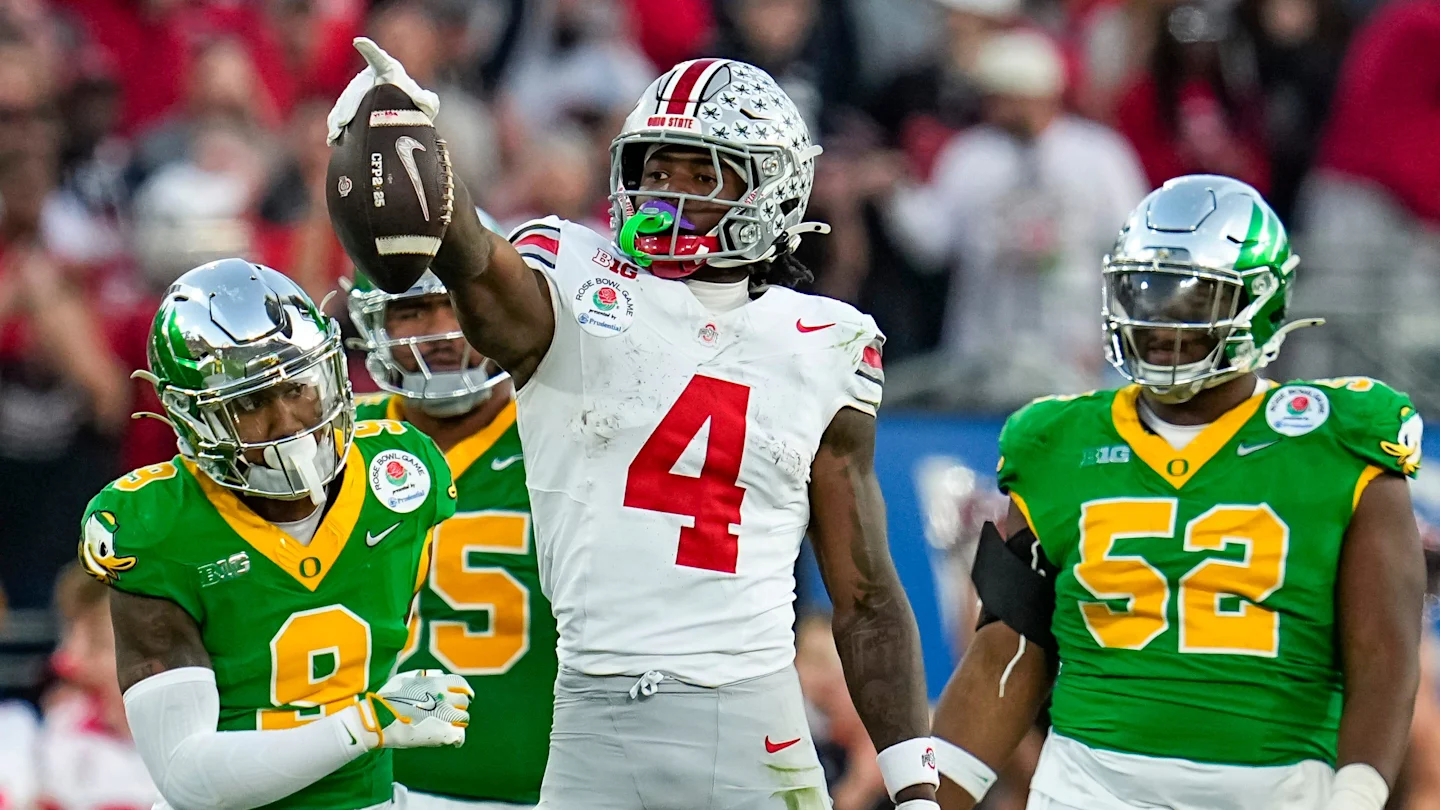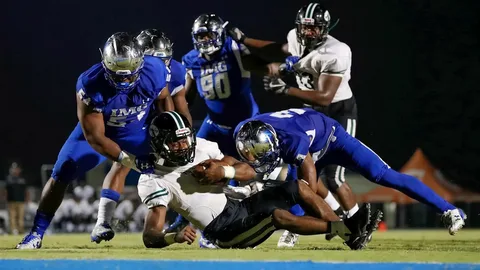In college football, physical skill is only part of the equation. While strength, speed, and technique are essential to success on the field, mental toughness is often the determining factor between winning and losing. The ability to push through pain, stay focused under pressure, and recover from mistakes separates great players from good ones. Mental toughness is a key component of elite performance, and it can make all the difference when the game is on the line or when you’re facing adversity during a tough season.
In this article, we’ll explore what mental toughness means in the context of college football, why it’s important, and how you can develop and strengthen your mental resilience to perform at your highest level, both on and off the field.
What is Mental Toughness?
Mental toughness refers to the ability to stay focused, confident, and resilient in the face of challenges. It’s about maintaining composure during stressful situations, bouncing back from setbacks, and remaining committed to your goals, no matter the obstacles.
In the world of college football, mental toughness manifests in various ways:
- Perseverance in Practice: Pushing through fatigue and staying focused during grueling practices.
- Composure During Games: Staying calm when the game is on the line, and making crucial decisions under pressure.
- Resilience After Mistakes: Quickly recovering from a bad play, missed tackle, or turnover and not letting it affect the rest of your performance.
- Self-Belief: Trusting your abilities and having confidence in your skills, even when the odds seem stacked against you.
Mental toughness is often considered a “learned” trait—it’s not something you’re born with, but something that can be cultivated and developed through practice and experience. Whether you’re a freshman stepping onto the field for the first time or a seasoned senior playing in your final game, mental toughness is a skill that will serve you well throughout your college football career and beyond.
Why Mental Toughness Matters in College Football
College football is a high-stress, high-stakes environment. The demands on athletes are immense—physically, mentally, and emotionally. In this fast-paced, intense atmosphere, mental toughness can be the edge that helps players excel.
Here’s why developing mental toughness is so important in college football:
1. Handling the Pressure of High Expectations
College football players often face tremendous pressure, whether it’s from coaches, teammates, family, or fans. Mental toughness helps players manage these expectations without letting them overwhelm their performance. It’s about staying focused on the process rather than the outcome, and not getting too high or too low depending on the situation.
2. Resilience During Adversity
Every football season has its ups and downs. Injuries, losing streaks, personal setbacks, and tough losses are inevitable. Mental toughness allows athletes to recover from adversity, stay motivated through difficult times, and continue working towards their goals, even when things aren’t going their way. The best players are those who don’t let setbacks define them, but instead, use them as fuel for future success.
3. Staying Focused in High-Pressure Situations
Football games are often decided in moments of extreme pressure, whether it’s a crucial 4th-and-1, a game-winning field goal, or a must-have defensive stop. Mental toughness allows players to perform their best when the stakes are highest, staying calm and executing the task at hand. It also helps players maintain focus and stay disciplined, even when emotions are running high.
4. Consistency in Performance
Mental toughness is what enables athletes to perform consistently. Physical ability can fluctuate based on fatigue, injuries, or other factors, but a mentally tough athlete can maintain focus and consistency, even when the body is tired or the competition is fierce. Mental resilience allows you to stay motivated and give 100% effort, no matter the circumstances.
Key Components of Mental Toughness
While mental toughness may seem like a broad and abstract concept, it’s actually made up of specific qualities that can be developed and strengthened over time. Below are the key components of mental toughness that college football players need to foster:
1. Focus and Concentration
One of the most critical aspects of mental toughness is the ability to stay focused and concentrate, even when distractions are all around you. Whether it’s a crowd noise, a bad play, or an opposing player trying to get inside your head, maintaining focus allows you to stay in the moment and perform at your highest level.
How to Build Focus:
- Practice mindfulness exercises, such as deep breathing, to help you stay present.
- Break the game down into smaller, manageable tasks (e.g., focusing on a single play or a particular technique) instead of thinking about the entire game.
- Limit distractions during practice and training by actively engaging with your surroundings and concentrating on your drills.
2. Confidence and Self-Belief
Confidence is essential for mental toughness. A lack of confidence can lead to hesitation, self-doubt, and missed opportunities. When players trust in their skills and abilities, they are more likely to perform well under pressure and take on challenges with a positive mindset.
How to Build Confidence:
- Focus on your strengths and remind yourself of past successes, no matter how small.
- Visualize success before games and practices—imagine yourself executing plays perfectly and handling high-pressure situations with ease.
- Challenge negative thoughts. Whenever you doubt yourself, counter it with positive affirmations and reminders of your hard work and preparation.
3. Resilience: Bouncing Back from Setbacks
Resilience is the ability to recover from failure or mistakes quickly. In football, mistakes happen—whether it’s a missed tackle, a dropped pass, or a turnover. What separates good players from great players is the ability to bounce back after a setback and maintain confidence throughout the rest of the game.
How to Build Resilience:
- Accept mistakes as part of the learning process and don’t dwell on them.
- Develop a short memory—forget the bad play and move on to the next one.
- Focus on solutions and what you can control, rather than wasting energy on things outside of your control.
4. Discipline and Work Ethic
Mental toughness is directly related to your discipline and work ethic. The ability to stay committed to your training, adhere to a strict routine, and push through tough days is vital to success on the field. A mentally tough player doesn’t take shortcuts and understands that success comes from sustained effort over time.
How to Build Discipline:
- Set clear, achievable goals both in football and in your personal life. Having specific objectives helps you stay motivated and focused.
- Hold yourself accountable for your actions. Stay consistent with your training, nutrition, and recovery.
- Develop a growth mindset by embracing challenges and viewing them as opportunities to improve.
5. Emotional Control
Football is a highly emotional game. Players can experience a wide range of emotions, from excitement and joy to frustration and anger. Mental toughness involves the ability to control your emotions, stay calm, and make rational decisions, even in the heat of the moment.
How to Build Emotional Control:
- Practice stress-management techniques, such as deep breathing or meditation, to stay calm during high-pressure situations.
- Maintain a positive attitude and encourage your teammates, even when things aren’t going well.
- Learn to control your reactions—take a deep breath before responding to a challenging situation on the field.
Strategies for Developing Mental Toughness
Now that we understand the importance of mental toughness and the qualities that make it up, let’s discuss specific strategies for developing mental toughness on the football field.
1. Visualization and Mental Rehearsal
Visualization is one of the most powerful tools for developing mental toughness. By mentally rehearsing successful plays and imagining yourself overcoming challenges, you can prepare your mind for success. Visualization helps build confidence, focus, and resilience.
- How to Practice Visualization: Spend 10-15 minutes a day imagining yourself executing perfect plays or handling tough situations with composure. Try to see the play in vivid detail—how it feels to make a great tackle, score a touchdown, or block a field goal.
2. Positive Self-Talk
The way you talk to yourself can either build or break your mental toughness. Positive self-talk is a powerful tool for reinforcing confidence and staying resilient. Replace negative or self-doubting thoughts with affirmations and empowering statements.
- How to Practice Positive Self-Talk: Use statements like “I am strong,” “I am prepared,” and “I will overcome this challenge.” Whenever you feel doubt creeping in, repeat these affirmations to yourself, especially before big moments.
3. Setting Small, Achievable Goals
Mental toughness thrives on small wins. Set achievable goals for every practice, workout, and game. Break larger objectives into manageable tasks so you can celebrate progress along the way. This keeps you motivated and reinforces the belief that you can succeed.
- How to Set Goals: Break down your goals into short-term (daily or weekly) and long-term (seasonal or career) objectives. For example, focus on improving your blocking technique during practice or improving your endurance over the next few weeks.
4. Building a Support System
Having a strong support system of teammates, coaches, and mentors can also strengthen your mental toughness. Surround yourself with people who believe in you and hold you accountable. They can provide encouragement during difficult times and help you stay motivated.
Conclusion: Mental Toughness as a Key to Success
In college football, mental toughness is just as important as physical skill. Developing mental resilience, confidence, focus, and emotional control will allow you to perform at your highest level and overcome the inevitable challenges you’ll face along the way. By incorporating strategies like visualization, positive self-talk, goal setting, and building resilience, you can cultivate the mental toughness necessary for success both on and off the field.
When you develop the mental fortitude to persevere through adversity, stay calm under pressure, and bounce back from mistakes, you’ll be prepared to achieve greatness in college football and beyond.














Leave a Reply